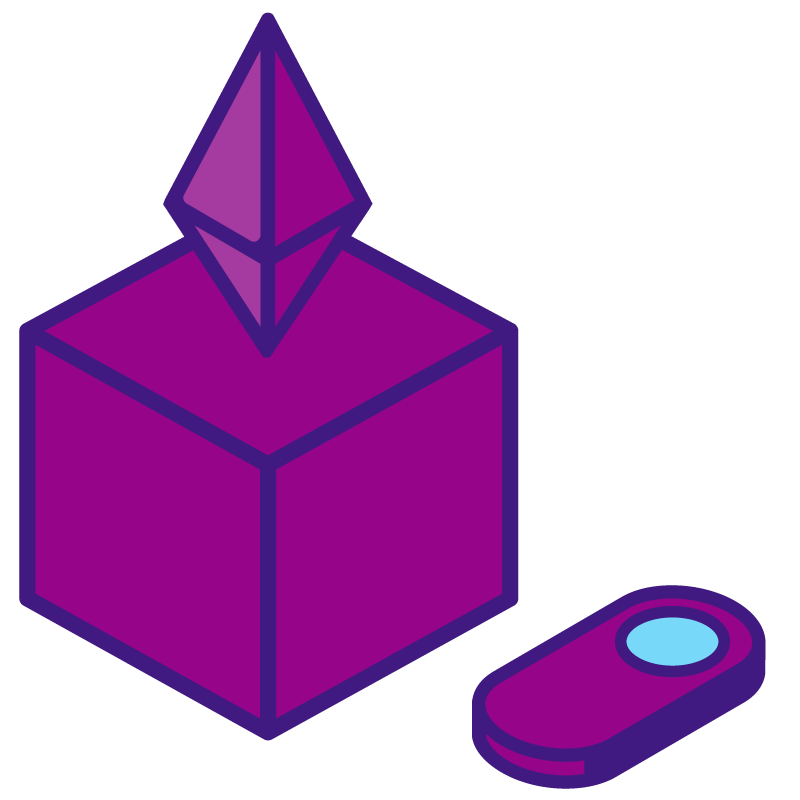The First Ever Sandbox Summer School
Follow the Pioneers of Innovation and the journey to become a Sandbox Facilitator
The program includes materials, lunch, tea/coffee. Accommodation is not included.
The Sandbox Summer School offered a unique opportunity for civil servants and policymakers to learn how to design, implement, and manage sandboxes in key emerging sectors such as artificial intelligence (AI), digital public infrastructure (DPI), fintech, as well as applications on health, infrastructure and communication services.
Over the course of the 5 days program, participants engaged with experts, shared experiences, and developed practical knowledge that can be applied to their own contexts, including a hands-on lab to co-create a sandbox.
The Sandbox Summer School was offered by the Datasphere Initiative in the context of the Global Sandbox Forum capacity building program.
The first edition of the Sandbox Summer School brought together global experts and sandbox leaders for a week of learning, exchange, and collaboration. Over the course of five days, participants explored the four core modules outlined above through interactive sessions, practical exercises, and peer learning.

Understand what sandboxes are, their evolution, types, and role in fostering responsible innovation and regulatory experimentation.
Learn key objectives, design best practices, sector-specific examples, required resources, and when (or when not) to use a sandbox.
Explore potential downsides—like transparency and legitimacy concerns—and strategies to address them, including assessing organizational readiness.

Learn how sandboxes are applied in key sectors: AI, local initiatives, and cross-border cooperation.
Explore AI-specific regulatory frameworks used to incentivize and govern the deployment of real-world existing sandboxes, how municipalities use sandboxes for smart city projects, and the role of cross-border sandboxes in addressing global issues.
Provide real-world insights into the applications of sandboxes based on case studies from various regions.

Go through the key phases of the sandbox journey: Initiation, Planning, Implementation, Communication & Engagement, and Exit & Evaluation.
Learn how to define a sandbox, plan its structure, engage stakeholders, manage operations, and assess its success with KPIs.
Cover the practical steps of setting up, running, and evaluating a sandbox.
Explore real-world examples for these different key phases.

Apply the knowledge and strategies they’ve learned throughout the course with an interactive, hands-on environment.
This module is structured around three key approaches: an individual exercise, a co-creation workshop, and a simulation phase.
✓ Participants Soapbox (Group exercise 1)
✓ Crash course on Sandboxes
– What is a sandbox?
– Sandboxes for what?
– How to sandbox
✓ The sandbox dilemma(s) (Group exercise 2)
✓ When to sandbox?
✓ Sandboxes in the financial sector
✓ Sandboxes for AI
✓ Sandboxes for DPI
✓ Sandboxes for health
✓ The sandbox design lab (Group exercise 3)
✓ Sandboxes and the private sector
✓ Sandboxes for Municipalities/Local Initiatives
✓ Navigating Cross-Border Innovation: Sandboxes and Regulatory Alignment in Action
✓ Global Collaboration and Sandboxes
✓ Co-Creation Workshop: “In the Sandbox Together” (Group exercise 4)
✓ Sandbox Initiation
✓ Sandbox Planning
✓ Individual exercise: “Solving Your Sandbox Problem”
✓ Sandbox Implementation
✓ Sandbox Communication & Engagement
✓ Sandbox Exit & Evaluation
✓ Simulation Phase: “The Sandbox Experience” (Group exercise 5)
✓ Sandbox Circle (Group exercise 6)
✓ Sandbox Summer School Closing

Tech Policy and Regulatory Affairs expert, Law Professor and the Academic Director of the Executive Program on Law, Policy and Technology at IE Law School

AI Airlock Programme Manager at the Medicines and Healthcare products Regulatory Agency, Portfolio Delivery Lead for the Adult Social Care Reform Portfolio

Co-Founder and Chief Vision Officer at the Datasphere Initiative and the Co-Founder and Executive Director of the Internet & Jurisdiction Policy Network

Executive Director of Asia eHealth Information Network, Board of Global Digital Health Network, Expert Committee of Global South e-Health Observatory

Executive Director en Global Network of Internet & Society Centers, led Colombia’s Artificial Intelligence Ethics Framework, Data Protection, AI Policy, and Innovation Specialist

Director of Innovation and Strategy at Fenasbac Brazil and Digital Economy, Financial Innovation, Social Impact and Digital Assets Specialist

Dean and VdA Chair in Digital Governance holder at Católica Global School of Law, Director of the Future Forum at the Gulbenkian Foundation

Research Director at Datasphere Initiative, Tech Policy & Regulation Professor at Universidade Presbiteriana Mackenzie, and Co-founder and Researcher at Instituto Liberdade Digital

Policy Officer at European AI Office of the European Commission, Policy Fellow at University of Cambridge, Social Data Science and Artificial Intelligence for Public Services Specialist

Specialist on AI Governance and Data Protection at the Brazilian Data Protection Authority, PhD in Law, Science, Technology and Society at Vrije Universiteit Brussel

AI Airlock Technical Programme Manager at the UK’s Medicines and Healthcare products Regulatory Agency, Design and Delivery of Projects within the AI Airlock Regulatory Sandbox Specialist

Executive Director of the Datasphere Initiative. Data, Internet Governance, Infrastructure Regulation, and Communication Policy Specialist

Unsersecretary for Regulation and Business Environment at the City of Rio Government, and Behavioral Law and Economics Researcher

Policy, Research, and Project Management Lead at the Datasphere Initiative, Policy Specialist with a background in Data Governance, Digital Inclusion, and Innovation for the Public Good

Programme Manager of the Innovation Sandbox for Artificial Intelligence at the Canton of Zurich, and Co-Founder of Momentum Collaboration

Director of Programs at the Datasphere Initiative, Policy Specialist with a background in Technology Policy, International Trade and Development

This summer school is designed for:

By the end of the program, you will:

The program uses a blended learning approach that combines expert-led lectures, interactive workshops, case studies, and practical labs. You will be guided through five key levels of intervention, gaining both theoretical understanding and hands-on experience.
Sandboxes are safe spaces to test new technologies and practices against regulatory frameworks or experiment with innovative uses and means of governing data. Initially used in FinTech, sandboxes are now being applied to broader economic sectors—from transportation to telecommunications to AI. They can be operational, regulatory, or hybrid. Read our 5-minutes introduction.
The readiness assessment will help determine if a sandbox is a good fit based on your regulatory environment, goals, and available resources and what steps to take to improve your institutional readiness.
The program covers sandboxes as applied in multiple sectors, including AI (read our Sandboxes for AI report), DPI, telecommunications, transportation, finance, and health—each offering unique regulatory challenges and opportunities for sandbox implementation.
Basic familiarity with experimental regulation and agile methodologies is helpful, but not required. The program will provide foundational knowledge.
Yes, the co-creation lab is designed for participants to bring real-world projects or ideas and work on them in collaboration with others.
The course will be an opportunity to present the state-of-the-art of evidence and guidance on sandboxes. It could help you with the process of exiting a sandbox, ensuring you have the documentation and evaluation necessary to inform future initiatives.
Our Admissions team is here to help and can advise whether this Sandbox Summer School is right for you and your learning goals. Send a message and apply now!